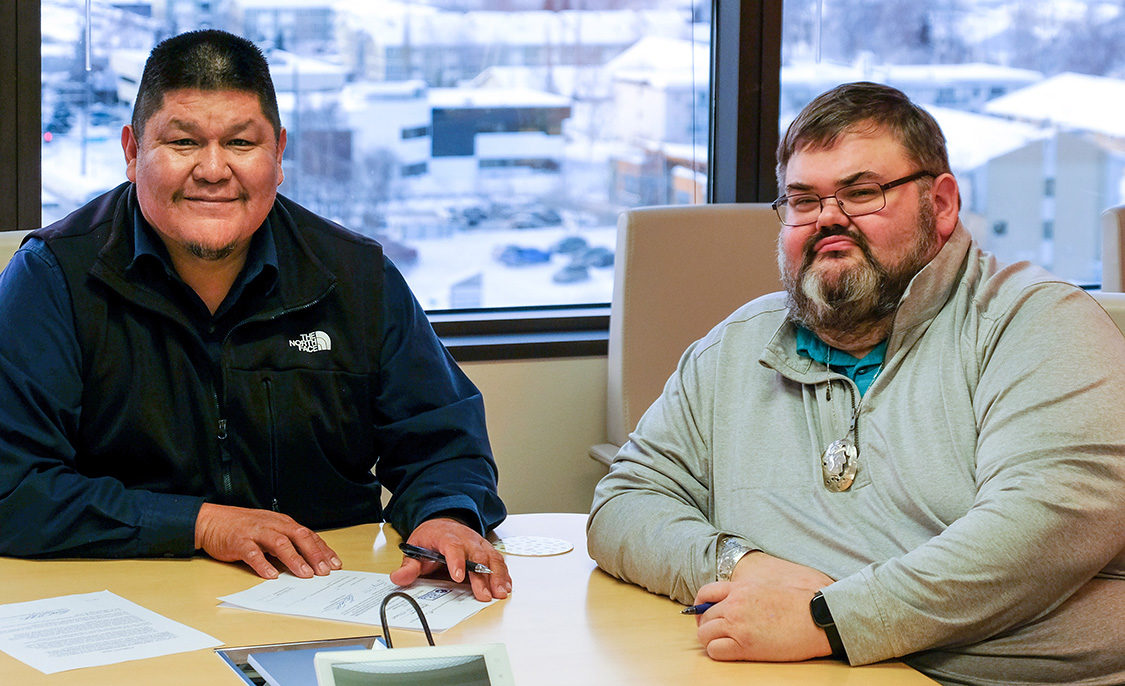
- Details
- By Brian Edwards, Tribal Business News
One week after the Central Council of the Tlingit & Haida Indian Tribes of Alaska signed the official deed to put its first parcel of land into federal trust, the state of Alaska has sued the federal government in an effort to nullify the land transfer.
In a lawsuit filed Tuesday in an Alaskan federal court, the state challenged a Department of Interior decision to accept the parcel of land in downtown Juneau into trust on behalf of the Tribe and to proclaim the land a reservation. The state claims that the decision by Interior Assistant Secretary Bryan Newland limits the state’s sovereign jurisdiction and undermines key terms of the Alaska Native Claims Settle Act, known as ANCSA.
The complaint alleges that the federal government’s decision to take the land into trust “jeopardizes the State’s rights to tax and to enforce land use, natural resource management, environmental, and public safety regulations on that trust land.”
The state asks the court to declare Inerior’s actions as “arbitrary and capricious … and not in accordance with the law.” The state also seeks to have the court cancel the decision to take the land into trust and prohibit the DOI calling it a reservation. As well, the state asks the court to enjoin the DOI from accepting or considering other requests to have lands in Alaska taken into trust.
“We believe that this issue of tribal lands was settled with the passage of ANCSA in 1971, and that has been the law of the land for more than 50 years. If we are wrong, then the Court needs to clarify it,” Alaska Governor Mike Dunleavy said in a statement. “The purpose of the case is to receive unambiguous legal clarity for the State, local governments, the tribes and all Alaskans, on the question of placing Native land into federal trust for the tribes.”
Tlingit and Haida President Richard Chalyee Éesh Peterson voiced his disappointment with the state’s legal action in an interview with a local newspaper, the Juneau Empire.
“It’s mean-spirited and it’s an assault on many of the mutual efforts and goodwill that have in recent years defined state and tribal relations in Alaska — it’s incredibly disappointing,” he told the Empire.
 Make A Monthly Donation Here
Make A Monthly Donation Here
The legal setback for the Tribe comes just a week after Peterson signed the deed at the BIA’s regional office in Anchorage on January 10, calling it “a great day for our Tribe, self-determination, and all tribes in Alaska” and saying the Tribe had “crossed the finish line in the land-into-trust process” that started more than 15 years ago.
This is a developing story.
Help us tell the stories that could save Native languages and food traditions
At a critical moment for Indian Country, Native News Online is embarking on our most ambitious reporting project yet: "Cultivating Culture," a three-year investigation into two forces shaping Native community survival—food sovereignty and language revitalization.
The devastating impact of COVID-19 accelerated the loss of Native elders and with them, irreplaceable cultural knowledge. Yet across tribal communities, innovative leaders are fighting back, reclaiming traditional food systems and breathing new life into Native languages. These aren't just cultural preservation efforts—they're powerful pathways to community health, healing, and resilience.
Our dedicated reporting team will spend three years documenting these stories through on-the-ground reporting in 18 tribal communities, producing over 200 in-depth stories, 18 podcast episodes, and multimedia content that amplifies Indigenous voices. We'll show policymakers, funders, and allies how cultural restoration directly impacts physical and mental wellness while celebrating successful models of sovereignty and self-determination.
This isn't corporate media parachuting into Indian Country for a quick story. This is sustained, relationship-based journalism by Native reporters who understand these communities. It's "Warrior Journalism"—fearless reporting that serves the 5.5 million readers who depend on us for news that mainstream media often ignores.
We need your help right now. While we've secured partial funding, we're still $450,000 short of our three-year budget. Our immediate goal is $25,000 this month to keep this critical work moving forward—funding reporter salaries, travel to remote communities, photography, and the deep reporting these stories deserve.
Every dollar directly supports Indigenous journalists telling Indigenous stories. Whether it's $5 or $50, your contribution ensures these vital narratives of resilience, innovation, and hope don't disappear into silence.
 The stakes couldn't be higher. Native languages are being lost at an alarming rate. Food insecurity plagues many tribal communities. But solutions are emerging, and these stories need to be told.
The stakes couldn't be higher. Native languages are being lost at an alarming rate. Food insecurity plagues many tribal communities. But solutions are emerging, and these stories need to be told.
Support independent Native journalism. Fund the stories that matter.
Levi Rickert (Potawatomi), Editor & Publisher
